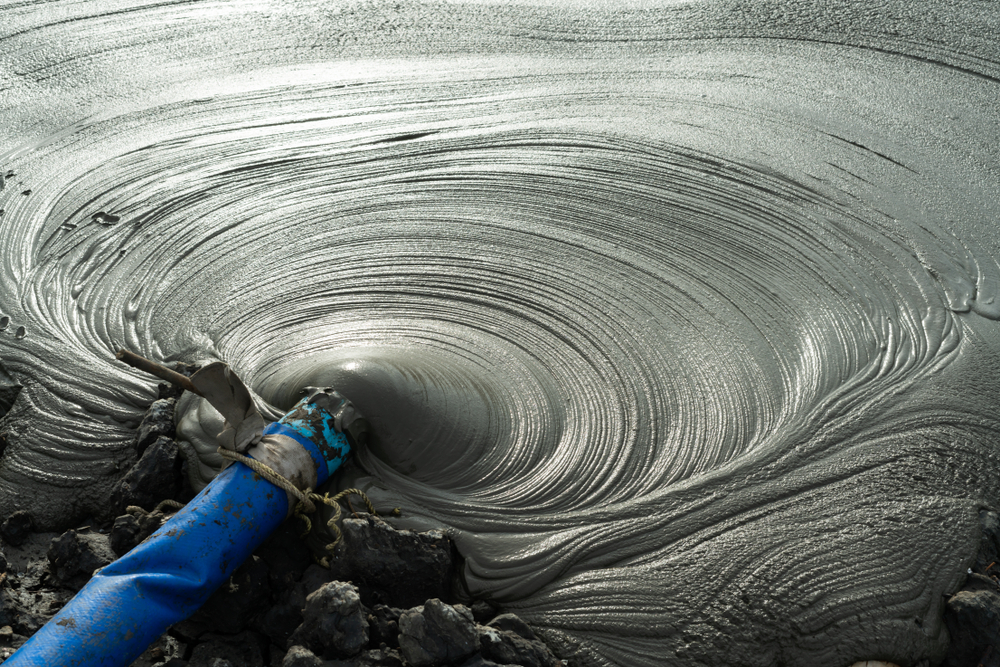Drilling Fluid Electrical Conductivity Testing
The testing of drilling fluids or muds is crucial in the oil and gas sector to ensure optimal performance during drilling operations. Drilling fluid electrical conductivity (EC) plays a significant role in maintaining the integrity of the borehole, enhancing the efficiency of the drilling process, and ensuring safety for both personnel and equipment.
Electrical conductivity in drilling fluids is influenced by the ionic content, which includes chloride ions, sodium ions, calcium ions, and other minerals. The EC test measures the ability of a fluid to conduct electricity, providing valuable insights into its composition and suitability for various drilling applications.
The significance of this testing lies in several critical aspects:
- It helps determine the fluid's efficiency in lubricating the drill bit, reducing friction, and minimizing wear on drilling equipment.
- Electrical conductivity also indicates the presence of salts or other additives that can impact the stability of the borehole and the overall drilling process.
- The test results are essential for compliance with industry standards such as API Spec 13B-2, which sets guidelines for drilling fluids in offshore operations.
Proper electrical conductivity testing is performed using specialized equipment like conductivity meters or ion-selective electrodes. The specimens used are typically representative samples of the drilling fluid collected from various depths during the drilling operation.
The process involves careful preparation to ensure accurate results. This includes filtering the sample to remove particulates and ensuring it is at a consistent temperature before testing.
Once prepared, the conductivity can be measured using an electrolyte solution in a cell that allows for precise readings. The EC of the drilling fluid is then compared against predefined acceptance criteria established by industry standards such as ISO 11523 and ASTM D1476.
The testing process is not just about measuring conductivity; it also involves monitoring other parameters like pH, viscosity, and filtration properties to ensure a comprehensive evaluation of the drilling fluid. This holistic approach ensures that the fluid meets all necessary performance criteria for its intended use in oil and gas exploration and production activities.
Applied Standards
The testing of electrical conductivity in drilling fluids is governed by several international standards, which provide a framework for accurate and consistent measurement. These include:
- ISO 11523:2020 - Determination of electrical conductivity of drilling fluids
- ASTM D1476, Standard Test Method for Electrical Conductivity of Water by Means of a Reciprocating Electrode Cell
The API (American Petroleum Institute) also provides guidance through its publications such as API Spec 13B-2, which includes recommendations on the use and testing of drilling fluids in offshore environments.
These standards ensure that the electrical conductivity measurement is reliable and can be consistently reproduced across different laboratories. Compliance with these standards is crucial for maintaining quality control throughout the oil and gas industry.
Industry Applications
- In onshore drilling operations, electrical conductivity testing helps in selecting the right fluid for specific geological conditions to prevent borehole collapse and ensure optimal drilling performance.
- For offshore drilling, where environmental factors like temperature variations can affect fluid properties, EC tests are essential to maintain fluid stability and efficiency.
- In deepwater drilling, the conductivity test ensures that the fluid can withstand high-pressure environments while maintaining its lubricating properties.
Understanding the electrical conductivity of drilling fluids is critical for optimizing the drilling process. By ensuring that the fluid meets the required standards, companies can enhance operational efficiency and safety on both land and sea.
Customer Impact and Satisfaction
The impact of accurate electrical conductivity testing extends beyond compliance; it directly influences customer satisfaction and operational success. Here are some key points:
- Enhanced Safety: Properly tested drilling fluids reduce the risk of accidents by ensuring that the fluid behaves as expected under various conditions.
- Increased Efficiency: The right conductivity ensures that the drilling process is smooth, reducing downtime and increasing productivity.
- Cost Savings: By preventing issues like borehole collapse or equipment damage, companies can save on repair costs and re-drilling expenses.
Clients who entrust their testing needs to reliable laboratories benefit from the expertise of our team. Our commitment to precision and accuracy ensures that customers receive results they can trust, leading to better-informed decision-making and ultimately higher satisfaction levels.





